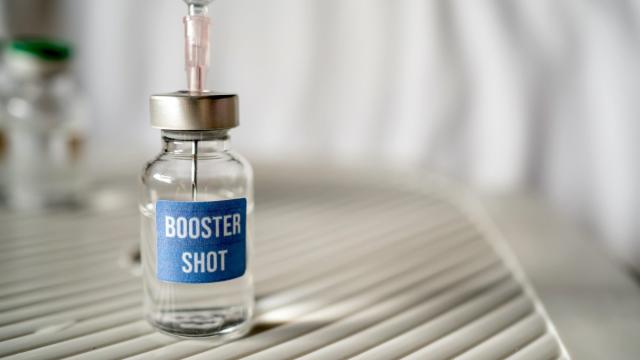Booster doses of the COVID-19 vaccines might be available soon, depending on what data is available and what judgment calls government officials decide to make. Third doses, on the other hand, are already available to people with weakened immune systems. So, what’s the difference?
The difference, in medical terminology, is that a booster happens sometime, usually a year or more, after you have gotten the vaccine and developed immunity. The idea of a booster is to “boost” your immunity as it begins to fade.
On the other hand, a vaccine may be administered in a series of doses in the first place. The two-dose COVID vaccines (Pfizer and Moderna) aren’t the only ones given as a series. Many childhood vaccines are, too: according to the U.S. CDC’s vaccine schedule, the measles-mumps-rubella (MMR) shot requires two doses, rotavirus requires two or three, polio requires three, and there are many more. Babies are developing their immune system, so they often require more doses than an older child or an adult. Children receiving their flu vaccine for the first time should get two doses, while those who have had it before or who are older than 8 when they get their first flu shot can go with a single dose.
Once your body has had a chance to establish immunity from a vaccine, the primary series is considered to be over. If you need another dose of the same vaccine later on, that is a booster. For example, you should get a tetanus (or Tdap) shot every 10 years. People who have been vaccinated against meningitis may need booster shots every few years if they are in a high-risk group.
The extra COVID shot for people with weakened immune systems is considered a third dose of the primary vaccine series, since two doses aren’t always enough to provide protection. After getting the first two doses three or four weeks apart (depending on whether it was Pfizer or Moderna), the third dose is given four weeks after the second.
Boosters, on the other hand, might be offered six months or a year after initial vaccination, no matter whether that initial series was two doses or three. (Until recently, the booster discussion had mainly centered around the mRNA vaccines, but boosters of the one-shot vaccine may be on the horizon, as well.) The idea is that the original series of shots gave you good protection, and as that protection fades, your immune system may need a boost.

Leave a Reply
You must be logged in to post a comment.